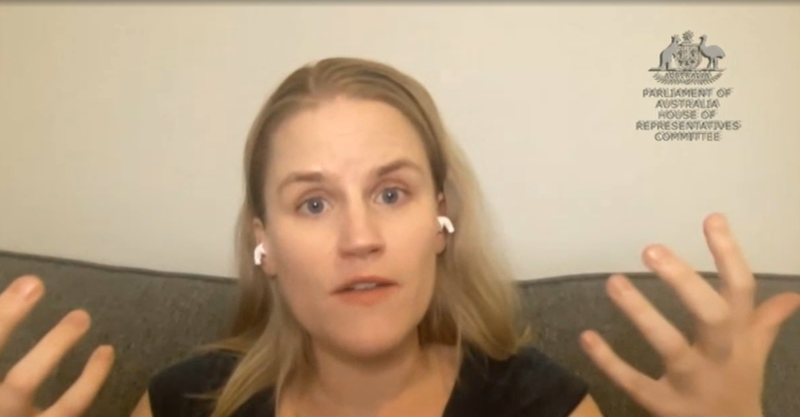Facebook whistleblower tells Senate Inquiry polarising ads are cheaper to run
Facebook whistleblower Frances Haugen told the Senate Inquiry into Social Media and Online Safety today that polarising advertisements are cheaper to run and get more engagements.
Haugen told the Inquiry: “Facebook says an ad that gets more engagements is a higher quality ad. And research has shown that angry and divisive, polarising ads are cheaper to run than compassionate [ads], or ones that are trying to find a middle ground or educate people. We can’t have a democracy when divisive, polarising and extreme speech is five-to-10 times cheaper than speech that is trying to figure out how those facts work.”

Frances Haugen appeared before the Inquiry

